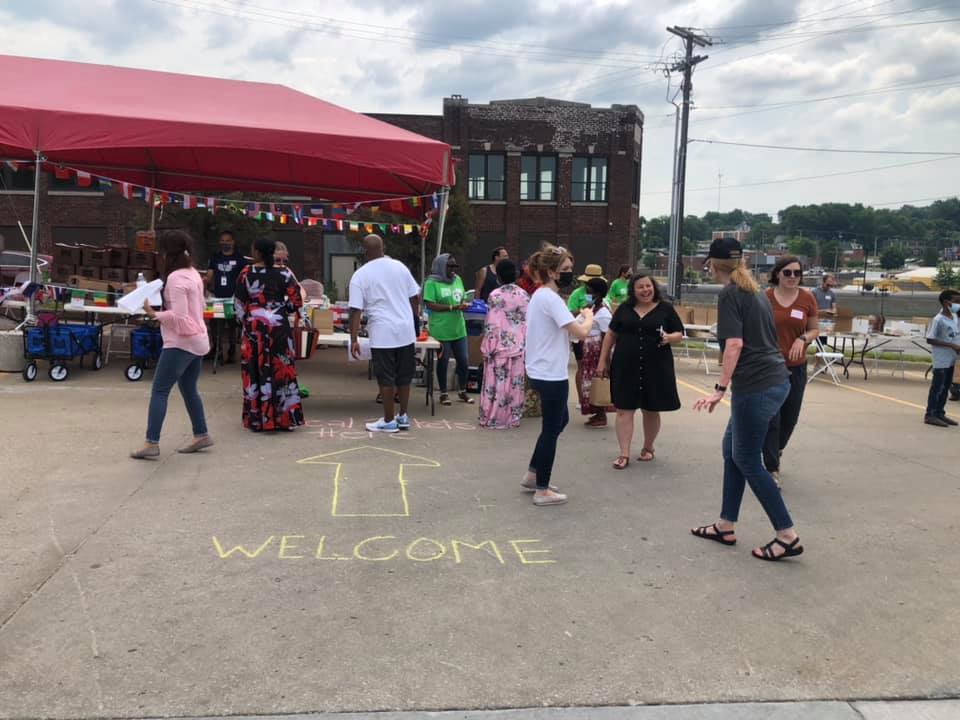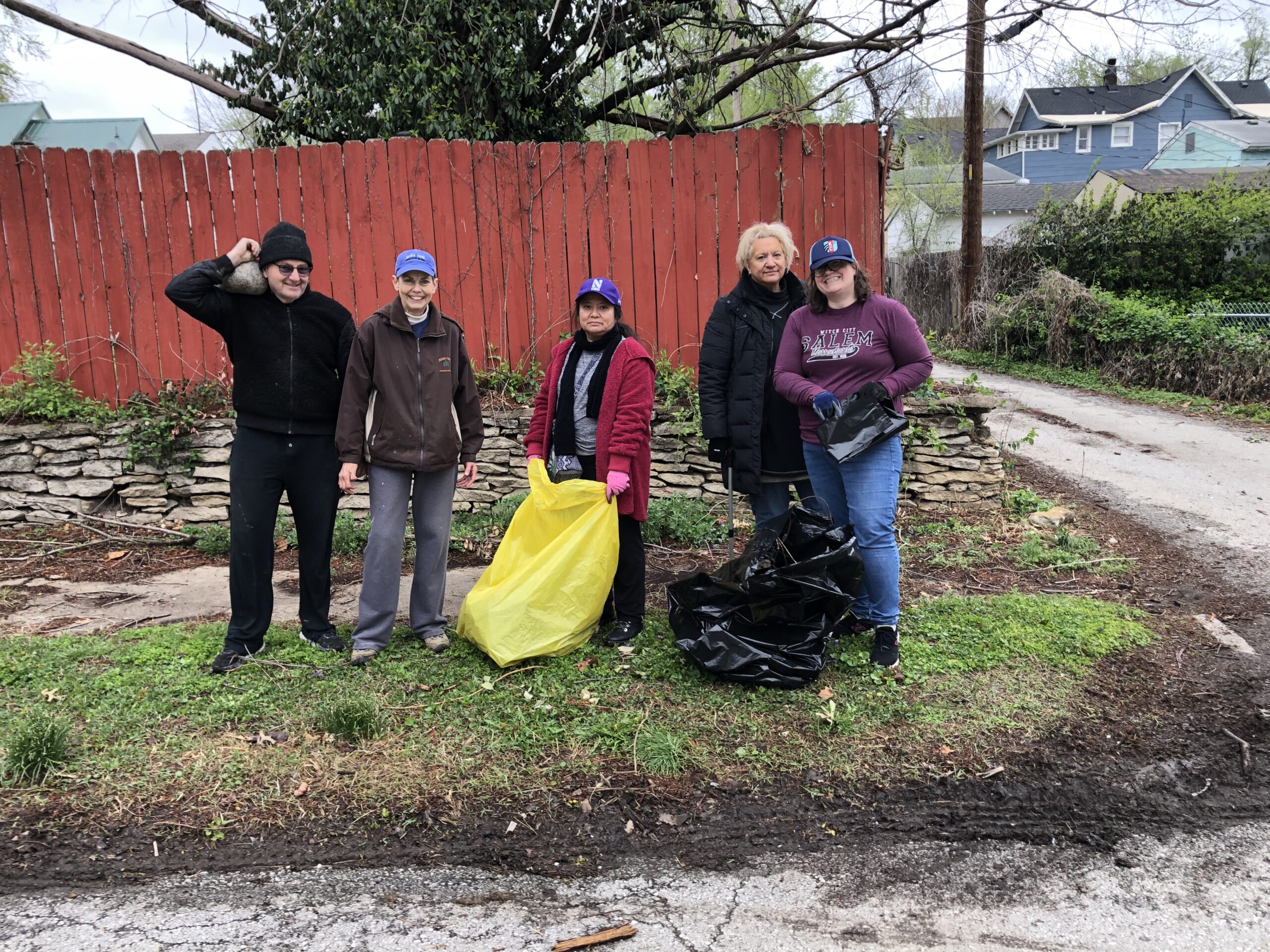
Corbin Smith
Editorial Assistant
Undoubtedly, this year’s World Refugee Day celebration was another unorthodox event. With COVID-19 slowly loosening its grip on American society, local organizations decided to do their part to help battle the pandemic.
On June 19, the North-East Branch of Kansas City Public Library hosted a COVID-19 vaccination clinic and celebration for World Refugee Day. Under a number of tents lining the parking lot at 6000 Wilson Ave., different organizations handed out fresh produce, library books, ice cream and food for free.
Jewish Vocational Services (JVS) Community Integration Director Naudy Solana-Daye said she tried to incorporate COVID-friendly activities while still having fun with the community. However, she has found it hard to get people out of their houses during a pandemic and encourage them to get a vaccine.
“The most important part of this event is the vaccine,” Solana-Daye said. “Some people feel like no one is reaching out to them. Nobody is asking them what the barriers are, why don’t they want to be vaccinated or if they want to be vaccinated. Back home in their countries, vaccines aren’t the most trusted, depending on where you’re from. So, this is just an opportunity for them to also be vaccinated. That was our main focus.”
Solana-Daye expressed various safety concerns that made it difficult to plan the event. Despite temperatures surpassing 95 degrees Fahrenheit, the event was held outside in order to allow for better social distancing and less chance of transmitting the virus.
Aside from the vaccination clinic, the focus was to educate and offer support to immigrant and refugee community members, but also provide a sense of belonging. Refugee and Immigrant Services and Empowerment (RISE) Outreach Manager Julie Robinson thought the best way of connecting the community was through a shared cultural experience.
“This is their community too, and we want them to know that they are always welcome at the library,” Robinson said regarding local refugees. “RISE offers language classes and other things and, you know, just having them here, maybe they’ll come back and take a class from us.”
Normally, the annual festival hosts live music and performances from different cultures represented by community members. With the pandemic still present, the festival lacked the live performance, but still featured culturally diverse music.
Robinson said that she hopes, in addition to gaining a sense of belonging, refugees and immigrants will become citizens and make a new home in the Historic Northeast community. She thinks one of the hardest parts of making her hope a reality is the language barrier. However, her access to bilingual library staff makes that obstacle a little easier to overcome.
Both Robinson and Solana-Daye emphasized the importance of encouraging people to get the vaccine and informing them of where they would be available.
Heart to Heart International Program Director Tenaga Shawtiruneh handles all COVID vaccination and testing events for his organization. Agreeing that it’s hard to convince people to get a vaccine they’re not familiar with, Shawtiruneh was happy to partner with the World Refugee Day celebration.
“Any incentive that you can provide for the community is always going to be a plus,” Shawtiruneh said. “Giving the people an opportunity to conveniently get vaccines — in case they had issues or concerns going to a certain location, if that was a barrier, just having it right next to them creates a better opportunity.”
Heart to Heart International reached out to the library to put together a vaccination clinic. Shawtiruneh said that the organization works on the community level in a way that reaches people who don’t have access to media outlets that normally advertise these types of events.
Not all of the vaccines that were on site may have been distributed, but that wasn’t the focus in Shawtiruneh’s eyes. He said that he wanted to merely offer up the opportunity in hopes that everybody who wanted to be vaccinated knew they could do so for free.
“Whether it’s the historical, cultural, religious, political, whatever the reasons are, there is hesitancy and there’s resistance to this particular vaccine,” Shawtiruneh said. “At Heart to Heart, we’re working with community groups and organizers to create seminars, surveys, educational webcasts, fliers and all of those things to reach communities. We want to get to that level, and then we will tailor our messaging around those barriers or concerns.”
Heart to Heart plans on going to local churches, mosques and community groups to inform people of the vaccine and better understand why so many people are hesitant to get vaccinated.
Heart to Heart, JVS and RISE were just a few organizations present that were aiding and celebrating the community. Organizers were pleased to see the number of people that showed up and plans to keep working to meld the community together.















